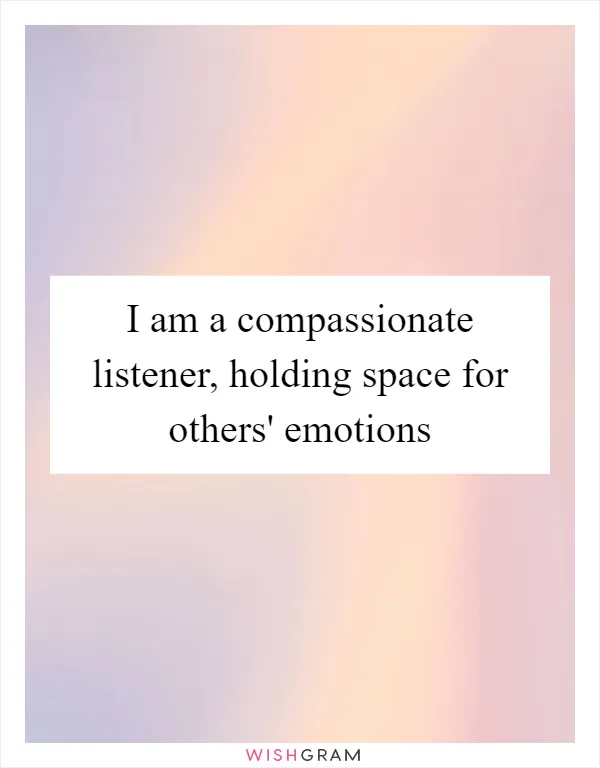I am a compassionate listener, holding space for others' emotions
The affirmation "I am a compassionate listener, holding space for others' emotions" can help you become a better listener and a more empathetic person. When you hold space for someone, you create a safe and supportive environment where they can express their emotions without fear of judgment or criticism. This can be incredibly healing and transformative for both the listener and the person sharing their feelings.
Being a compassionate listener means that you are fully present and engaged with the person you are listening to. You are not distracted by your own thoughts or concerns, but instead, you are focused on what they are saying and how they are feeling. You are patient and attentive, allowing them to speak at their own pace and in their own words. You are also non-judgmental, accepting their emotions and experiences without trying to fix or change them.
Holding space for others' emotions means that you are creating a container for their feelings. You are not trying to control or manipulate their emotions, but instead, you are allowing them to be fully expressed. This can be challenging at times, especially if the emotions are intense or uncomfortable, but it is an essential part of being a compassionate listener. By holding space for someone's emotions, you are helping them to process and release their feelings, which can be incredibly healing.
To become a more compassionate listener, it is important to practice active listening skills. This means that you are fully engaged with the person you are listening to, using verbal and nonverbal cues to show that you are present and attentive. You can also use reflective listening techniques, such as paraphrasing or summarizing what the person has said, to show that you understand and empathize with their feelings.
Another important aspect of being a compassionate listener is to practice self-care. Listening to others' emotions can be emotionally draining, so it is important to take care of yourself and set boundaries when necessary. This might mean taking breaks, practicing mindfulness or meditation, or seeking support from a therapist or counselor.
